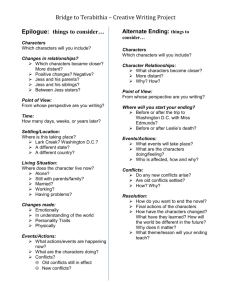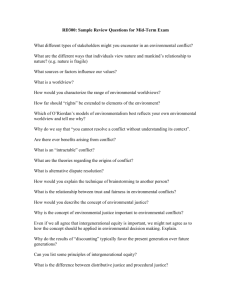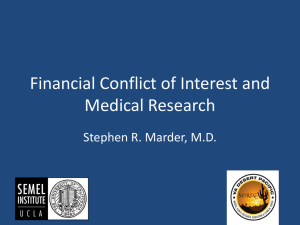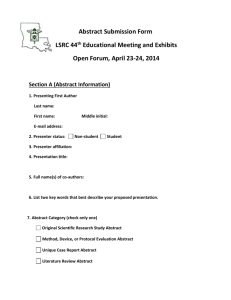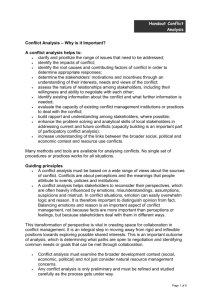October 22, 2007 - Center for Science in the Public Interest
advertisement
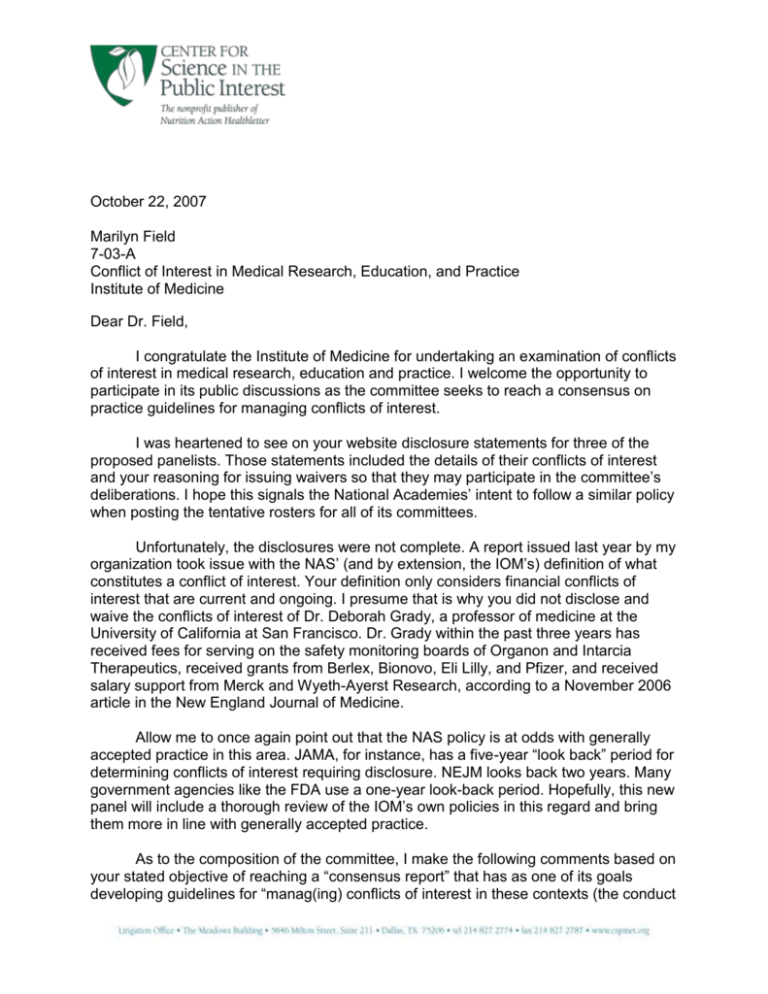
October 22, 2007 Marilyn Field 7-03-A Conflict of Interest in Medical Research, Education, and Practice Institute of Medicine Dear Dr. Field, I congratulate the Institute of Medicine for undertaking an examination of conflicts of interest in medical research, education and practice. I welcome the opportunity to participate in its public discussions as the committee seeks to reach a consensus on practice guidelines for managing conflicts of interest. I was heartened to see on your website disclosure statements for three of the proposed panelists. Those statements included the details of their conflicts of interest and your reasoning for issuing waivers so that they may participate in the committee’s deliberations. I hope this signals the National Academies’ intent to follow a similar policy when posting the tentative rosters for all of its committees. Unfortunately, the disclosures were not complete. A report issued last year by my organization took issue with the NAS’ (and by extension, the IOM’s) definition of what constitutes a conflict of interest. Your definition only considers financial conflicts of interest that are current and ongoing. I presume that is why you did not disclose and waive the conflicts of interest of Dr. Deborah Grady, a professor of medicine at the University of California at San Francisco. Dr. Grady within the past three years has received fees for serving on the safety monitoring boards of Organon and Intarcia Therapeutics, received grants from Berlex, Bionovo, Eli Lilly, and Pfizer, and received salary support from Merck and Wyeth-Ayerst Research, according to a November 2006 article in the New England Journal of Medicine. Allow me to once again point out that the NAS policy is at odds with generally accepted practice in this area. JAMA, for instance, has a five-year “look back” period for determining conflicts of interest requiring disclosure. NEJM looks back two years. Many government agencies like the FDA use a one-year look-back period. Hopefully, this new panel will include a thorough review of the IOM’s own policies in this regard and bring them more in line with generally accepted practice. As to the composition of the committee, I make the following comments based on your stated objective of reaching a “consensus report” that has as one of its goals developing guidelines for “manag(ing) conflicts of interest in these contexts (the conduct of research, education of health professionals, development of practice guidelines, and provision of patient care) without damaging constructive collaboration with industry.” Neither I nor any of the individuals and organizations that have been concerned about conflicts of interest in medicine in recent years have an interest in damaging constructive collaboration with industry. But surely what might damage that collaboration is a topic on which reasonable people may differ. And this is where the composition of this committee falls short. You have chosen to put at least three (by your definition) people with conflicts of interest on this committee, including one person recently retired from industry. Since this is not a “state of the science” committee but one evaluating a policy, I have no problem with their inclusion. It makes sense to have at least some people with conflicts of interest as part of a discussion about the best way to manage those conflicts, especially since the committee is specifically charged with coming up with a consensus. However, you have excluded all the medical professionals who have worked on or conducted research in this field in recent years. The absence of experts like Jerome Kassirer, former editor of NEJM, Sheldon Krimsky of Tufts University, Lisa Bero of UCSF, Eric Campbell of Massachusetts General Hospital, and David Rothman of Columbia University detracts from the purported balance of a committee that has been asked to come up with a consensus. I hope you will consider adding one or two more scientists from this list to your roster to give it the balance – and ultimately, the public credibility – you seek. Sincerely, Merrill Goozner Director, Integrity in Science Project Center for Science in the Public Interest Cc: William Colglazier, Executive Officer, NAS Harvey V. Fineberg, President, Council of the Institute of Medicine Andrew M. Pope, Director, Health Sciences Policy Board



